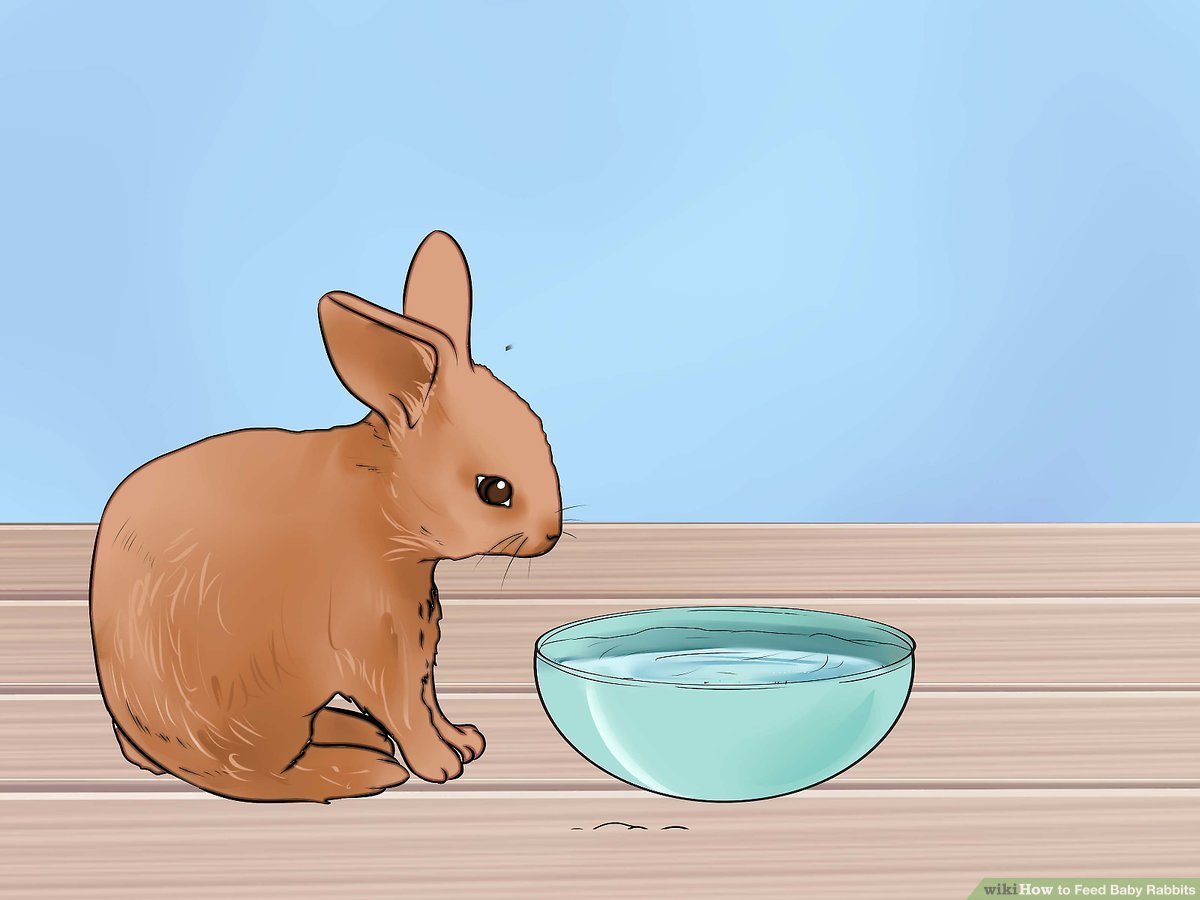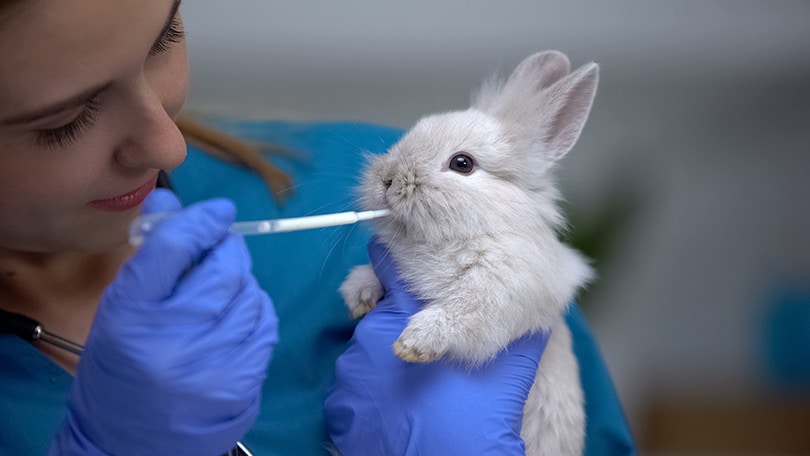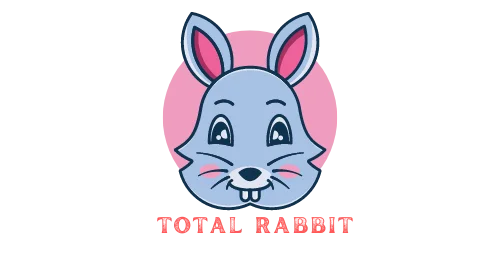What To Feed Baby Rabbits

Feeding baby rabbits can be a tricky business. If you’re not careful, you can easily over or under feed them, and this can lead to serious health problems. So what’s the best way to ensure your little ones are getting the nutrition they need?
The first step is to determine how many babies you have. This will help you figure out how much food they’ll need each day. Once you know that, you can start thinking about what kind of food to give them.
When it comes to what to feed baby rabbits, there are a few things you need to keep in mind. First and foremost, baby rabbits need a diet that is high in fiber in order to help them with their digestive system. This means that hay should make up the majority of their diet.
You can also supplement their diet with fresh vegetables and fruits as well as pellets specifically made for baby rabbits. It’s important not to overfeed them though, so make sure you consult with your veterinarian on how much food they should be eating each day.

Credit: petkeen.com
How Do You Keep Baby Rabbits Alive?
According to the House Rabbit Society, the leading domestic rabbit welfare organization in the US, there are several key things you can do to keep your baby rabbit alive and healthy.
First, it’s important to understand that rabbits are prey animals and as such, they’re naturally fearful of anything that moves quickly or makes loud noises. This means that handling them roughly or allowing them to become scared can easily lead to them going into shock and dying.
So it’s crucial that you handle your baby rabbit gently and calmly at all times.
Second, rabbits are also very fragile creatures and their bones are particularly delicate. This means that dropping or mishandling a rabbit can easily break its bones or cause serious internal injuries.
So it’s important to always support a rabbit’s body when picking it up, and never pick it up by its ears.
Third, like all animals, rabbits need food and water to survive. But unlike other animals, rabbits cannot vomit so they have a very delicate digestive system which is easily upset.
This means that you need to be careful what you feed your rabbit as some foods can cause fatal intestinal blockages. The best diet for a domestic rabbit is hay (70-80%), fresh vegetables (10-20%), and a small amount of pellets (5-10%).
Fourth, because of their delicate digestive system, rabbits also need access to fresh water at all times.
A water bottle attached to the side of the cage is the best way to provide this as bowls of water tend to get dirty quickly and can easily spill over causing an unhealthy mess for your bunny friend.
Finally, like all pets, rabbits need regular veterinary care in order to stay healthy. This includes annual checkups as well as vaccinations against common diseases such as rabies and Bordetella bronchiseptica (a bacteria which causes respiratory infections).
What Should You Not Feed Baby Rabbits?
When it comes to what not to feed baby rabbits, there are a few key things to keep in mind. First and foremost, avoid giving them any kind of processed food or table scraps. These can be very harmful to their delicate digestive system.
Instead, focus on providing them with a diet of hay, fresh vegetables, and water.
Another important thing to remember is that baby rabbits should never have access to milk or dairy products. This can cause them serious stomach upset and diarrhea.
If you’re looking for a way to provide your little one with some extra nutrients, consider giving them a small amount of plain yogurt instead.
Finally, make sure that any treats you give your baby rabbit are healthy and nutritious. While they may be tempting to reach for the sugary snacks, these will do nothing but harm their developing teeth and bodies.
Choose items like fruits, vegetables, or even whole-grain biscuits instead. By following these simple tips, you can help ensure that your baby rabbit grows up healthy and happy!
How Do You Feed Baby Rabbits at Home?
Assuming you have pet rabbits and not wild rabbits, the process for feeding baby rabbits at home is relatively simple. The first step is to purchase quality rabbit food from a trusted source. Once you have the food, you will need to create a comfortable space for the rabbit to eat in.
This can be done by placing a hay rack or other type of feeder in the cage.
The next step is to introduce the food to the rabbit slowly. Start by offering a small amount of food and gradually increase the amount over time.
It is important to make sure that the rabbit always has access to fresh water.
Once the rabbit is eating solid food, you can begin to introduce vegetables and fruits into their diet. These should be given in moderation and should never make up more than 10% of their total diet.
Baby rabbits typically wean off of their mother’s milk around 8 weeks old, but this can vary depending on the individual rabbit.
Do Baby Rabbits Drink Water?
Yes, baby rabbits do drink water. In the wild, they would get their hydration from their mother’s milk, but if you are raising them yourself, you will need to provide them with fresh water daily. Baby rabbits have very delicate digestive systems and so it is important that their water is clean and free of any contaminants.
You can give them water from a bottle or a bowl, but make sure that the bowl is shallow enough that they can’t drown in it.
What To Feed A Baby Bunny
What to Feed Baby Rabbits Without a Mother
If you find yourself in the position of having to care for orphaned baby rabbits, don’t despair. Although it’s best if they can be raised by their mother, it is possible to hand-rear them successfully. The key is to provide them with the right nutrition so they can grow and thrive.
The first thing you’ll need to do is purchase a high quality commercial rabbit food pellet. These are formulated to provide all the nutrients baby rabbits need. Avoid any that contain corn or other grains, as these are not part of a healthy diet for rabbits.
You’ll also need some fresh vegetables and water.
As far as vegetables go, dark leafy greens like spinach and kale are excellent choices. Other good options include carrots, broccoli, and peas.
Feed your baby rabbits small amounts of these several times per day. Avoid giving them too much at once, as this could cause digestive problems. Start with just a few bites and gradually increase the amount as they get used to eating solid food.
In addition to fresh vegetables, you’ll also want to offer your baby rabbits access to water at all times. A small bowl or bottle works well for this purpose. Make sure the water is clean and fresh; babies are especially susceptible to dehydration so it’s important they have plenty of fluids available.
Raising orphaned baby rabbits can be a bit of work but it’s definitely worth it when you see them grow into healthy adults! Just be sure to give them the proper care and nutrition they need and they’ll do just fine without their mother.
What to Feed Baby Rabbits 8 Weeks Old
When it comes to feeding baby rabbits, there are a few things you need to keep in mind. First of all, you should never feed them cow’s milk as it can give them diarrhea. Instead, opt for goat’s milk or specially made rabbit milk replacers.
You can also give them water, but make sure it’s clean and fresh.
As for solid food, you can start giving them hay at around 8 weeks old. This will help with their digestion and is an important part of their diet.
You can also start giving them small amounts of fresh vegetables and fruits. Some good options include lettuce, carrots, apples, and bananas. Just remember to introduce new foods slowly so that their stomachs can adjust.
And always consult with your veterinarian before making any major changes to your bunny’s diet!
What Vegetables Can Baby Rabbits Eat
As your pet rabbit grows up, you’ll want to provide them with a variety of healthy foods to eat. But what about when they’re still young? What vegetables can baby rabbits eat?
The answer is: most of them! Just like human babies, baby rabbits are very versatile and can eat a wide variety of different foods. Here are some examples of safe and healthy vegetables for your little one:
-Carrots
-Celery
-Green beans
-Peas
-Spinach
-Turnip greens
These are just a few ideas – feel free to get creative and mix things up for your bunny! Just make sure that whatever you feed them is chopped into small pieces so they can easily digest it. And as always, offer fresh water at all times.
How Often to Feed Baby Rabbits
As a new rabbit owner, you may be wondering how often to feed your baby rabbits. The answer is that it depends on their age.
For the first four weeks of life, baby rabbits should be fed every two to three hours.
After four weeks, they can be switched to three meals per day. At eight weeks old, most rabbits are ready to eat hay and pellets in addition to their regular diet of vegetables and fruits.
The best way to determine how much food your rabbit needs is to offer them unlimited hay, fresh vegetables, and a small handful of pellets each day.
Adjust the amount of food based on your rabbit’s appetite and weight. If you notice that your rabbit is gaining too much weight, cut back on their food intake accordingly.
It’s also important to make sure that your rabbit has access to fresh water at all times.
A water bottle with a sipper tube is the best option for preventing spills.
Are any of the items on the “What Not to Feed Your Pet Rabbit” list safe for baby rabbits to eat?
Baby rabbits have delicate digestive systems, so it’s crucial to adhere to the recommended diet. However, what not to feed a pet rabbit list applies to both adult and baby rabbits. It’s important to avoid giving them any items on this list, as these foods can be harmful and potentially fatal for all rabbits.
Conclusion
As any pet owner knows, what you feed your animal is important for their health and development. The same goes for baby rabbits. While they are cute and cuddly, they have specific dietary needs that must be met in order to ensure their health.
So, what should you feed them?
A diet for a baby rabbit should consist of hay, fresh vegetables, and a small amount of pellets. Hay is essential for a rabbit’s digestion and provides them with the necessary fiber.
Fresh vegetables provide vitamins and minerals, while pellets give them protein and other nutrients. It is important to introduce these elements into their diet slowly so as not to upset their stomachs.
Baby rabbits also need access to water at all times.
A water bottle attached to the side of their cage is the best way to ensure they always have fresh water available.
Providing your baby rabbit with the proper diet is essential for their health and wellbeing. By following these guidelines, you can rest assured knowing you are doing everything you can to keep your little one healthy and happy!
